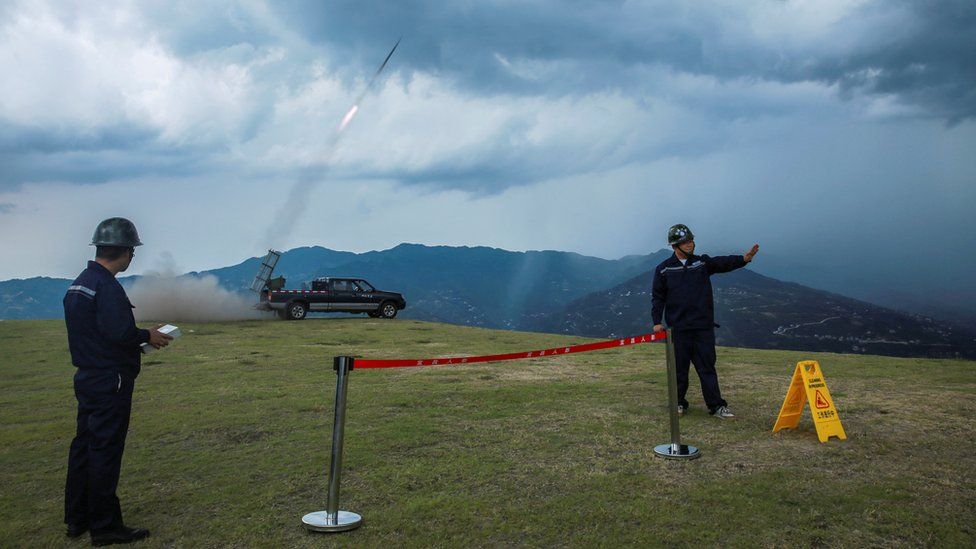Chinese authorities are attempting to induce rainfall in parts of central and southwest China amid a severe drought and record-breaking heatwave.
The Yangtze River - Asia's longest waterway - is now at record low levels. In some stretches, there has been less than half the usual rainfall.
Hydropower reservoirs are currently down by as much as half, officials say.
At the same time, a surge in demand for air conditioning has put power companies under extreme pressure.
The two-month-long heatwave is the longest on record in China, the National Climate Centre said.
Provinces around the drought-stricken Yangtze river have turned to cloud seeding operations to combat the lack of rain, with Hubei and a number of other provinces launching rockets carrying chemicals into the sky, according to local media.
But a lack of cloud cover has stalled efforts in some areas seeking to do the same.

People swim in the intersection of the Han and Yangtze rivers during the heatwave in Wuhan, Hubei province on 10 August
Meanwhile, temperatures across Sichuan and neighbouring provinces have exceeded 40C (104 F).
As a result, government offices in Sichuan were asked to keep air conditioning levels at no lower than 26C (79 F), according to the Sichuan Daily quoted by Reuters news agency. Workers have also been asked to use staircases rather than lifts where possible.
Millions of residents have also been hit with black outs in the province.
In the city of Dazhou, home to some 5.4 million people, blackouts are lasting up to three hours, local media report.
They say factories in the province have been forced to cut production or halt work as part of emergency measures to redirect power supplies to households.
Hydropower reservoirs - of which there are many in the region - are currently down by as much as half, officials added.






Recommended Comments
There are no comments to display.
Join the conversation
You can post now and register later. If you have an account, sign in now to post with your account.
Note: Your post will require moderator approval before it will be visible.